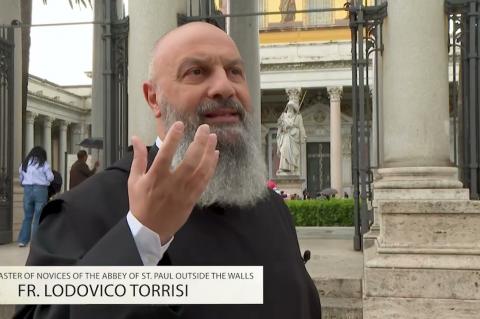The Path of St. John Henry Newman from Oxford to Rome | Vaticano
Five years ago, with thousands of pilgrims gathered in St. Peter’s Square, Pope Francis declared Cardinal John Henry Newman a saint. A brilliant academic, poet, theologian, and one of the most charismatic figures of the 19th century, Newman left an indelible mark on his time.
From Anglican Roots to Catholic Curiosity
Born in England in 1801, Newman was raised in an Anglican family. Ordained as an Anglican priest at 24, he served as a clergyman and professor at Oxford’s Oriel College for over two decades. Despite his High Church allegiance, he harbored deep respect for the early Christian tradition, which he believed the Anglican Church shared. Yet, Newman’s journey took an unexpected turn, leading him to question and ultimately embrace Catholicism.
“He knew that the Church of Rome was the mother of the Church in England,” explains Father Hermann Geissler, director of the Newman Center in Rome. This reverence for Rome conflicted with his belief that “the Pope was the Antichrist,” a sentiment held by many Anglicans of his time.
A Journey of Illness and Revelation
Newman’s journey to Catholicism was marked by a significant episode in 1833. During a trip to Italy, he contracted typhus, which led him to a moment of profound spiritual experience. “He cried out in his delirium, ‘I will not die because I have not sinned against the light,’” recalls Father Geissler, indicating a mystical encounter that Newman himself struggled to explain fully.
By 1845, Newman’s studies of the Church Fathers led him to leave Anglicanism and join the Catholic Church. He sought to catholicize Anglicanism, but after resistance from Oxford and the Anglican bishops, he chose to live in seclusion near Oxford, devoting himself to study, prayer, and discernment.
Embracing Rome and Leaving a Lasting Legacy
In 1846, Newman traveled to Rome to prepare for ordination at the Missionary College of Propaganda Fide. During his stay, he met Pope Pius IX, who visited him personally—a testament to Newman’s growing influence. By 1847, Newman was ordained and returned to England, founding the English Oratory of Saint Philip Neri in Birmingham.
His final visit to Rome came in 1879, when Pope Leo XIII, aware of Newman’s impact, named him a cardinal. Despite initial hesitations about relocating to Rome, Newman was reassured that he could remain in England, honoring both his role and the Catholic Church in his homeland.
Newman’s journey from Oxford to Rome came full circle five years ago, as Pope Francis canonized him in St. Peter’s Square, solidifying his legacy as a saint and a key figure in the Catholic Church.
Støtt vårt arbeid:






